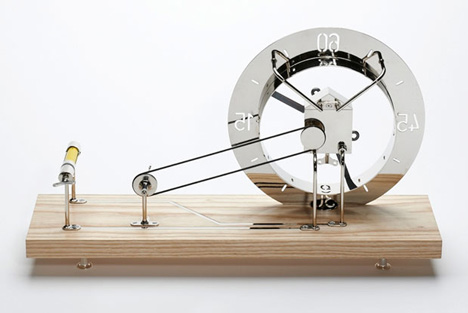
Clock for an Architect by Daniel Weil
This belt-driven clock was designed by Argentinian designer Daniel Weil of Pentagram as a gift for an architect.

The timepiece displays minutes and hours on the outside and inside of a nickle-plated ring, while the battery is housed away from the main mechanism and connected by visible wires recessed in the wooden base.
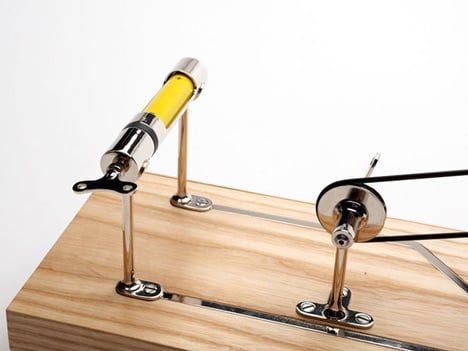
The alarm hand can be set by turning a key to drive the connecting rubber belt.

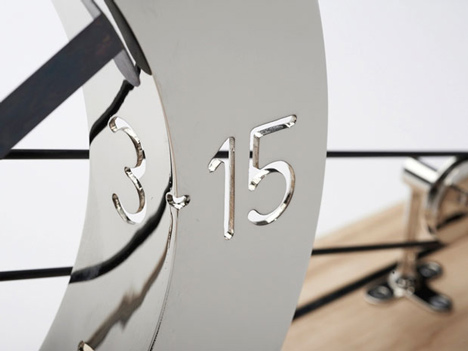
The information that follows is from Pentagram:
Privately commissioned to create a gift for an architect, Daniel Weil created a one-of-a-kind clock that is both simple and complex.
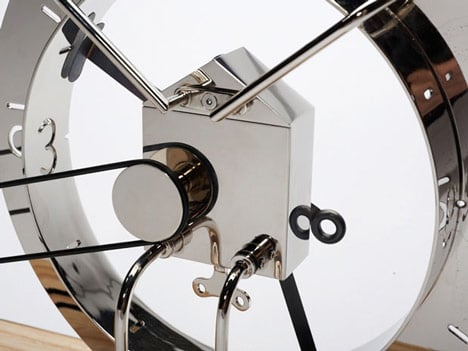
Reducing objects to their component parts has long fascinated Weil.

The Radio in a Bag he created for his degree show at the Royal College of Art three decades ago is an icon of 20th century industrial design.
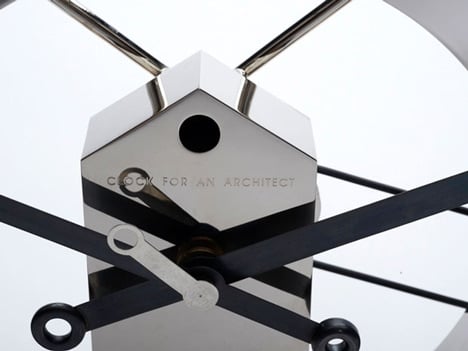
This clock is the latest demonstration of his interest in investigating not just how objects look, but how they work.
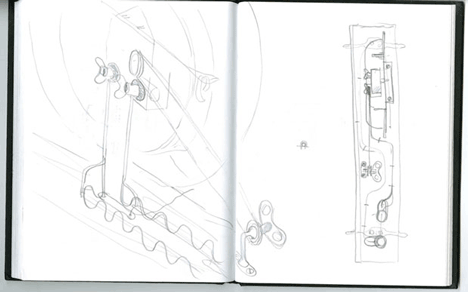
Constructed in ash and nickel-plated brass and silver, the clock is built of five separate elements. The numbers, both hours and minutes, are inscribed on the face and interior of a 9 3/4-inches diameter ring. The mechanism for setting the time connects with the central mechanism with visible rubber belts.
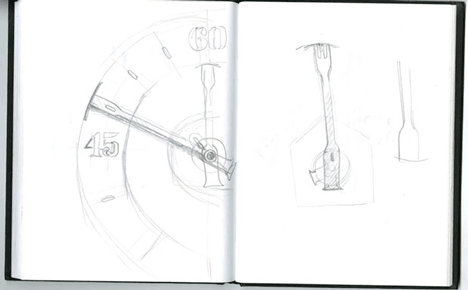
A single AA battery provides power to the clock through visible power strips that are recessed in the assembly’s base. (Note the different screws that support the battery stand, keyed to the positive and negative poles of the power source.)
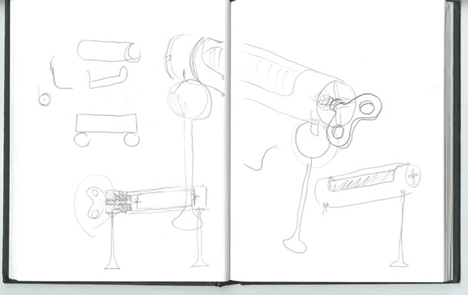
And, befitting the object’s recipient, the housing for the central mechanism takes the form of, literally, a house.
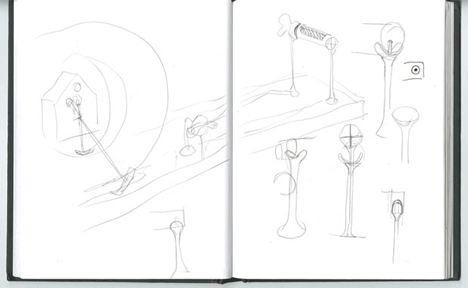
“Objects like clocks are both prosaic and profound,” says Weil. “Prosiac because of their ubiquity in everyday life, profound because of the mysterious nature of time itself. Time can be reduced to hours, minutes and seconds, just as a clock can be reduced to its component parts. This doesn’t explain time, but in a way simply exposes its mysterious essence.”
See also:
.
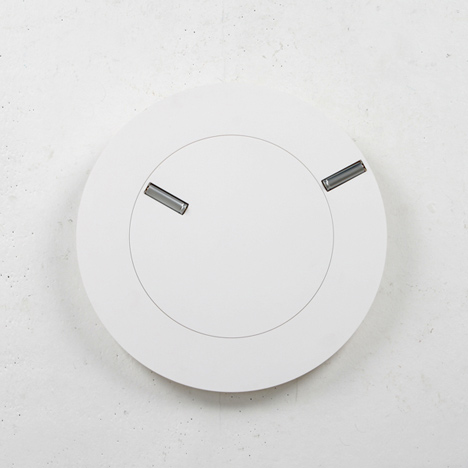 |
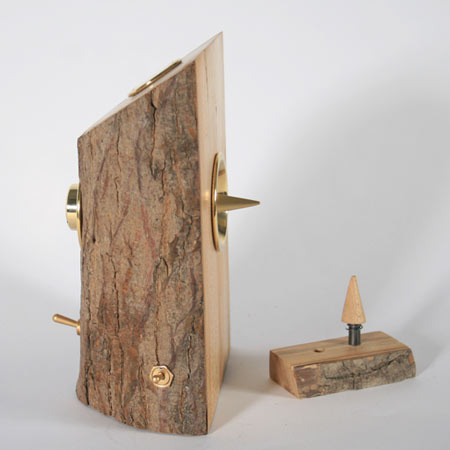 |
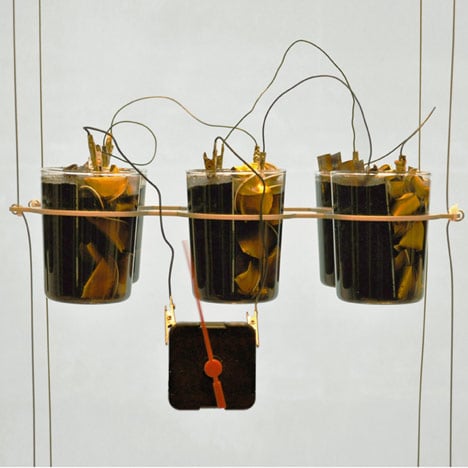 |
| The Front & Back by Giha Woo and Shingoeun |
The Alarming Clock by Natalie Duckett |
Nespresso Battery by Mischer’Traxler |